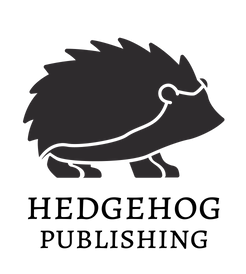Kathryn Tse-Durham: Of Beautiful Battle Scars and Flawed Utopias
It is already July. I’m a mixed bag of emotions and thoughts as I reflect on how this year has transpired. I believe 2020 thus far has been a year of heavy trials and tribulations for many all over the globe, and for some the traumas and devastations will linger for years to come. There is a lyric in John Lennon’s Beautiful Boy that “life is what happens to you while you’re busy making other plans.” How true that is.
With so much time spent social-distancing at home, one upside is that I’ve been able to catch up on some late-night reading after putting my boys to sleep. I devoured the excellent dystopian Scythe trilogy by Neal Shusterman. It is one of the most original and intriguing stories I’ve read. Though the books are aimed at a young-adult audience, the subject matter is actually quite dark and heavy. It is an easy read, and it leaves you with plenty to mull over. This is what great writing conjures: ideas, questions, epiphanies, and lessons learned. And from this story, a glaring moral lesson can be gleaned: in our quest to attain a perfect world, a Utopia in which humans are immortal and no longer fall sick, a world in which humans no longer have to fight for justice and freedom or strive for progress, a so-called perfect world where we can no longer identify with the tragedies and triumphs of Shakespeare…We’d lose essential parts of our humanity, wouldn’t we?
Once the very things that make up the essence of songs and poetry and novels and films – turmoil, tragedy, loss, regret – are somehow eliminated, then what is left? For how do we truly appreciate and treasure love, family, friendship, triumphs, and the sanctity of life in a Utopia where death and loss and tragedy are no longer part of the equation? Scythe cleverly and elegantly asks these questions, and though it is never explicitly told, we are shown (as all great stories do) the answer: though these are not the things we want in life, it is the difficult stuff that gives our life meaning and makes us grow. Think about your favourite, most inspiring stories. Les Misérables. The Taxi Driver (Korean film). The Shawshank Redemption. The Pursuit of Happiness. Schindler’s List. The Book Thief. The Theory of Everything. The Untouchables. These stories are worthy of telling because they celebrate the tenacity of the human spirit: that no matter how crushing life gets, we don’t give up, we survive, we forge on until the light emerges at the end of the tunnel. Because the darkness doesn’t last forever. The sun will rise, the skies will clear. We may stumble, we may cry and scream with anguish and tear our hair out; but then we grit our teeth, hold our head up high, and keep going. And therein lies the great contradiction of the human condition: we hate hardship and tragedy, we try to avoid pain at all costs; but without any of the difficult stuff, aren’t we just empty and stagnant vessels waiting to expire? As M. Scott Peck stated at the beginning of his wonderful book The Road Less Traveled: Life is difficult. So perhaps the least we could ask for is this: let the inevitable turmoil come, but at bearable dosages please.
A little personal anecdote to show that sometimes, mishaps can be a blessing in disguise: When I was studying for my Masters degree in Australia, I was assigned to intern as a Speech Pathologist at a small country-town hospital. As a city girl, I was not happy about this. Why did I have to drive over eight hours cross-country by myself in my beat-up Volvo with NO air-conditioning in the searing summer heat while my classmates were assigned to nearby hospitals and clinics in the city? “Because you ticked the box that indicated you have wheels,” my supervisor laughed, and I mentally kicked myself. So I accepted my plight and set off for Bundaberg, a small town in the middle of nowhere that’s actually world-famous for its ginger beer and rum. There I was, speeding along the highway in that sky-blue tank of a Volvo with nothing but packed bags and a 2003 Nokia mobile phone (no GPS or smart phones back then!) when the steering wheel started shuddering and the hood started smoking! Images of kidnapping highwaymen and murderous psychopaths flashed across my mind as I slowed the car down and parked at the side of the highway. I waited for over half an hour alone on that huge expanse of road and dry shrubbery before the familiar yellow and blue RACQ truck arrived, and I prayed that the driver wasn’t some lecherous predator. The friendly bearded man fixed up my Volvo and gently reminded me that perhaps it was time to give up my ancient contraption for something like an amiable Toyota or Honda, before waving goodbye and driving off, leaving me deflating with relief as I quickly jumped back into my tank and sped away, thanking God I was alive and kicking. And you know what? Despite my initial reluctance and the rocky-road start, I had one of the best times of my life in Bundaberg.
As I reflect on this year of personal hardships and challenges, I also smile at my victories, some big, some small. Like everyone else, I have battle scars, and I am proud of them. And as Hong Kong, my beloved home, is embroiled in adversity, I want to say this on behalf of all of us who love this glorious city: we shall forge on. The sun will come up. One day, stories will be told of what we overcame. And I shall keep writing.
Kathryn Tse-Durham
Author of The Ellanor Chronicles
8th July 2020
This blog post is also posted on Kathryn’s Facebook Page. Visit here.


July 10, 2020 @ 10:49 pm
Excellent blog Kathryn and echoes of how I have felt about 2020 so far! Hang on to the Hope!
Thank you for sharing your gift of writing.